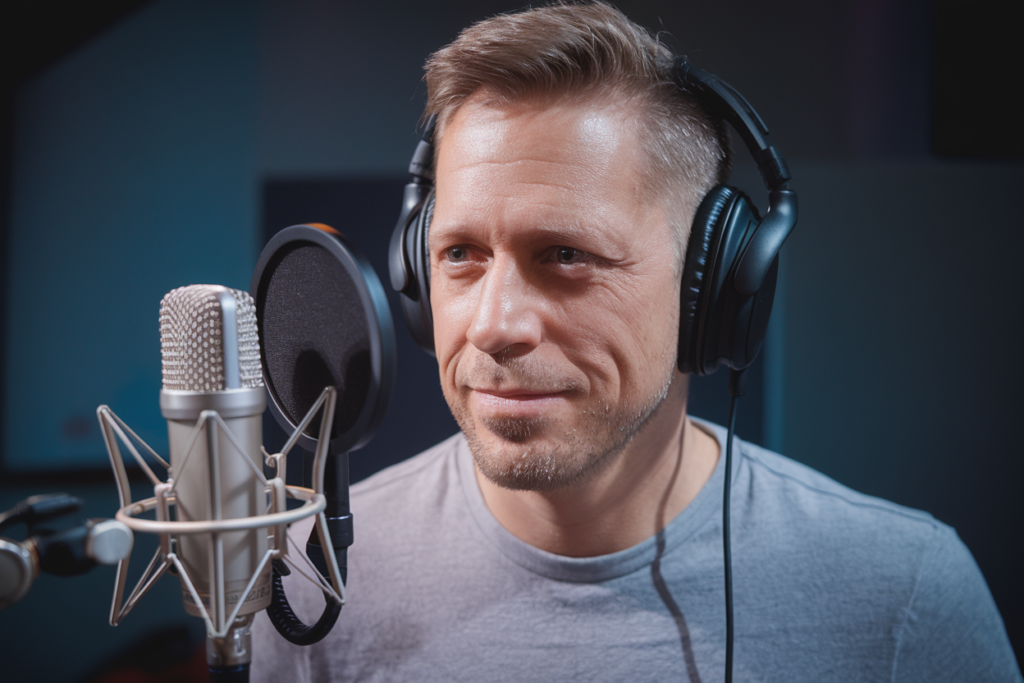The role of a German voice actor is pivotal in various industries, from entertainment to corporate communications. Whether you’re producing a film, an advertisement, or an educational module, a professional German voice actor ensures cultural authenticity and linguistic precision, enhancing your content’s impact.
The Role of a German Voice Actor
German voice actors bring characters and scripts to life by combining linguistic expertise, emotional nuance, and technical skills. Their contributions are invaluable in industries such as:
- Film and Animation: Dubbing foreign films or creating voices for animated characters.
- Commercials: Voicing advertisements targeting German-speaking audiences.
- Corporate Training and eLearning: Narrating instructional videos or company communications.
- Video Games: Providing immersive voices for German-speaking characters.
- Audiobooks: Delivering engaging storytelling for German-language audiences.
Language Proficiency in German Voice Acting
A German voice actor must exhibit impeccable fluency and mastery over Standard German (Hochdeutsch). This ensures clarity and comprehensibility, particularly for audiences unfamiliar with regional dialects. Key qualities include:
- Accurate Pronunciation: Essential for conveying professionalism and authenticity.
- Cultural Sensitivity: Understanding nuances specific to German-speaking regions.
- Adaptability: Ability to switch between formal and casual tones as required.
German Accents and Dialects in Voice Acting
Germany boasts a rich linguistic diversity with various regional accents and dialects. A skilled German voice actor often incorporates these elements to cater to specific audience preferences:
Standard German (Hochdeutsch)
The neutral accent used for most professional voiceovers. It ensures broad accessibility across Germany, Austria, and Switzerland.
Regional German Accents
- Bavarian: Characterized by its melodic tone, ideal for localizing content targeting Southern Germany.
- Berlinisch: A distinct urban accent with charm, often used in informal and comedic contexts.
- Swabian: Gentle and friendly, suited for warm, approachable messaging.
Swiss and Austrian German
Though mutually intelligible, these variants include unique vocabulary and pronunciation, often requiring native expertise for accurate portrayal.
Applications of a German Voice Actor
Localization of Content
A German voice actor can adapt scripts to resonate with local audiences while preserving the original intent. This is critical for:
- Global Advertisements
- Educational Content
- Documentaries
Authentic Storytelling
For projects requiring emotional depth or narrative complexity, a native German voice actor ensures authenticity.
Branding and Commercials
Professional voiceovers enhance brand trust and memorability, particularly when targeting the German-speaking market.
Finding the Right German Voice Actor
Choosing the ideal voice actor involves assessing their:
- Linguistic Expertise: Ability to handle diverse accents and dialects.
- Voice Style: Matching the tone and style to your project’s requirements.
- Experience: Proven track record in relevant industries.
- Demo Reel: Listening to samples to gauge suitability.
Investing in a skilled German voice actor ensures your project connects with German-speaking audiences on a deeper level, delivering both cultural authenticity and emotional resonance.







